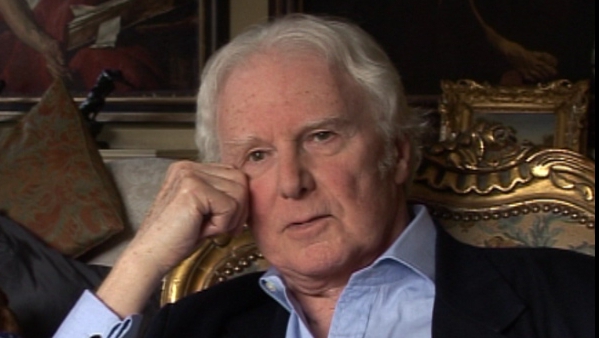NEXT STORY

To be an art critic is to take a lonely path
RELATED STORIES

NEXT STORY

To be an art critic is to take a lonely path
RELATED STORIES


|
Views | Duration | |
|---|---|---|---|
| 81. Casual sex on the Thames river towpath | 352 | 06:54 | |
| 82. Performing homosexual acts in public places | 328 | 03:46 | |
| 83. AIDS has changed everything | 238 | 06:13 | |
| 84. A religious upbringing and my longing to be a priest | 228 | 02:51 | |
| 85. The need for chastity in celibacy | 230 | 05:54 | |
| 86. Becoming the art critic at the Evening Standard | 213 | 04:03 | |
| 87. The pull of journalism | 208 | 03:53 | |
| 88. Writing destructive art reviews | 296 | 06:24 | |
| 89. Artists are my targets | 246 | 02:49 | |
| 90. To be an art critic is to take a lonely path | 234 | 02:45 |

[Q] And do you, as a critic, have a sort of responsibility to the emotional welfare, one might say, of the person you’re writing about? I mean, I’m thinking of Kitaj in fact...
I have no responsibility for somebody who is immensely wealthy, immensely popular, is subsidised by the state, who is sent off to Venice to represent us in the Biennale, who’s sent to São Paulo, to that Biennial, who’s in the great German show that occurs… documenta. No, I… no, no. He is there. He is my target, because part of what I’m saying is: how did you get where you are? Because you’ve been the beneficiary of unalloyed adulation by idiots who give you money. You don’t deserve to be where you are. So pricking balloons and emperor’s new clothes and all the other clichés, that’s what I’m there to do. I am a critic. It’s not for me to go along with every critic who thinks this man is marvellous, because there are so many critics, like Richard Cork, who preceded me, who are vicars of Bray where these things are concerned, and who will never express an opinion unless somebody else has expressed it first. And if the tide of opinion is that somebody is marvellous, is worthy of the Turner Prize at 25,000 quid a year, you know, and is so great a painter that he must be made a trustee of the Tate Gallery, no. No. This has somehow to be checked. Even if I don’t succeed in stopping it, at least there may be, as a consequence, a reconsideration of this artist. Some of them are so entrenched and so powerful that they are invincible, and I’m constantly saying I have no influence, because I have no influence. I’ve never been the trustee of anything. I’ve never been asked by a Minister of the Arts for my opinion on any of the idiotic things the DCMS, the Department of the Arts does, or whatever.
So I have no power, but I feel that having no power, I must use the only instrument I’ve got, which is my page in the Evening Standard.
Born in England, Brian Sewell (1931-2015) was considered to be one of Britain’s most prominent and outspoken art critics. He was educated at the Courtauld Institute of Art and subsequently became an art critic for the London Evening Standard; he received numerous awards for his work in journalism. Sewell also presented several television documentaries, including an arts travelogue called The Naked Pilgrim in 2003. He talked candidly about the prejudice he endured because of his sexuality.
Title: Artists are my targets
Listeners: Christopher Sykes
Christopher Sykes is an independent documentary producer who has made a number of films about science and scientists for BBC TV, Channel Four, and PBS.
Tags: Venice Biennale, São Paulo Biennial, documenta, Tate Gallery, Turner Prize, Department for Digital, Culture, Media and Sport, DCMS, Evening Standard, Ronald Brooks Kitaj, Richard Cork
Duration: 2 minutes, 49 seconds
Date story recorded: April 2013
Date story went live: 04 July 2013